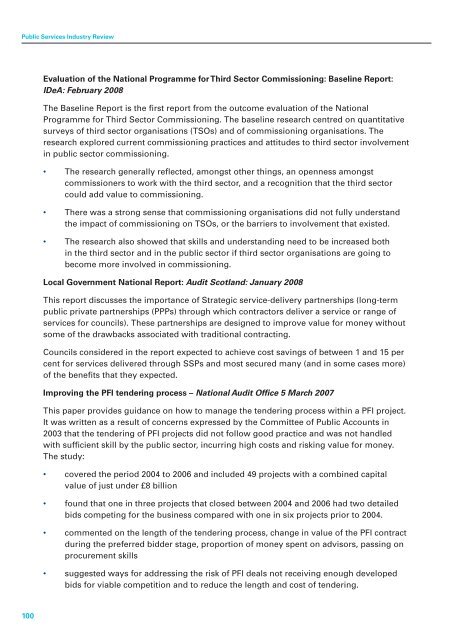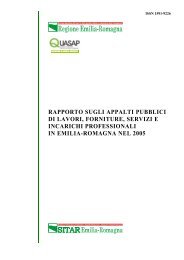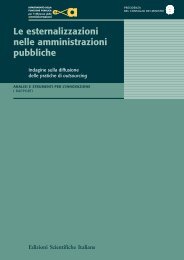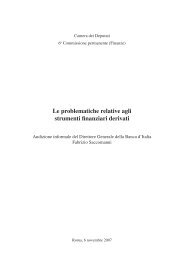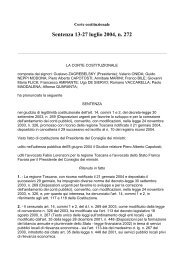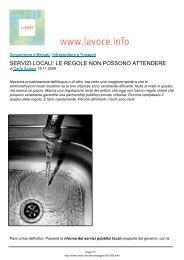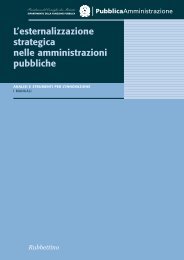Understanding the Public Services Industy
Understanding the Public Services Industy
Understanding the Public Services Industy
You also want an ePaper? Increase the reach of your titles
YUMPU automatically turns print PDFs into web optimized ePapers that Google loves.
<strong>Public</strong> <strong>Services</strong> Industry Review<br />
Evaluation of <strong>the</strong> National Programme for Third Sector Commissioning: Baseline Report:<br />
IDeA: February 2008<br />
The Baseline Report is <strong>the</strong> first report from <strong>the</strong> outcome evaluation of <strong>the</strong> National<br />
Programme for Third Sector Commissioning. The baseline research centred on quantitative<br />
surveys of third sector organisations (TSOs) and of commissioning organisations. The<br />
research explored current commissioning practices and attitudes to third sector involvement<br />
in public sector commissioning.<br />
•<br />
•<br />
•<br />
The research generally reflected, amongst o<strong>the</strong>r things, an openness amongst<br />
commissioners to work with <strong>the</strong> third sector, and a recognition that <strong>the</strong> third sector<br />
could add value to commissioning.<br />
There was a strong sense that commissioning organisations did not fully understand<br />
<strong>the</strong> impact of commissioning on TSOs, or <strong>the</strong> barriers to involvement that existed.<br />
The research also showed that skills and understanding need to be increased both<br />
in <strong>the</strong> third sector and in <strong>the</strong> public sector if third sector organisations are going to<br />
become more involved in commissioning.<br />
Local Government National Report: Audit Scotland: January 2008<br />
This report discusses <strong>the</strong> importance of Strategic service-delivery partnerships (long-term<br />
public private partnerships (PPPs) through which contractors deliver a service or range of<br />
services for councils). These partnerships are designed to improve value for money without<br />
some of <strong>the</strong> drawbacks associated with traditional contracting.<br />
Councils considered in <strong>the</strong> report expected to achieve cost savings of between 1 and 15 per<br />
cent for services delivered through SSPs and most secured many (and in some cases more)<br />
of <strong>the</strong> benefits that <strong>the</strong>y expected.<br />
Improving <strong>the</strong> PFI tendering process – National Audit Office 5 March 2007<br />
This paper provides guidance on how to manage <strong>the</strong> tendering process within a PFI project.<br />
It was written as a result of concerns expressed by <strong>the</strong> Committee of <strong>Public</strong> Accounts in<br />
2003 that <strong>the</strong> tendering of PFI projects did not follow good practice and was not handled<br />
with sufficient skill by <strong>the</strong> public sector, incurring high costs and risking value for money.<br />
The study:<br />
•<br />
•<br />
•<br />
•<br />
covered <strong>the</strong> period 2004 to 2006 and included 49 projects with a combined capital<br />
value of just under £8 billion<br />
found that one in three projects that closed between 2004 and 2006 had two detailed<br />
bids competing for <strong>the</strong> business compared with one in six projects prior to 2004.<br />
commented on <strong>the</strong> length of <strong>the</strong> tendering process, change in value of <strong>the</strong> PFI contract<br />
during <strong>the</strong> preferred bidder stage, proportion of money spent on advisors, passing on<br />
procurement skills<br />
suggested ways for addressing <strong>the</strong> risk of PFI deals not receiving enough developed<br />
bids for viable competition and to reduce <strong>the</strong> length and cost of tendering.<br />
100


